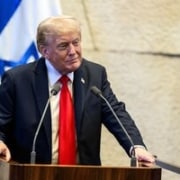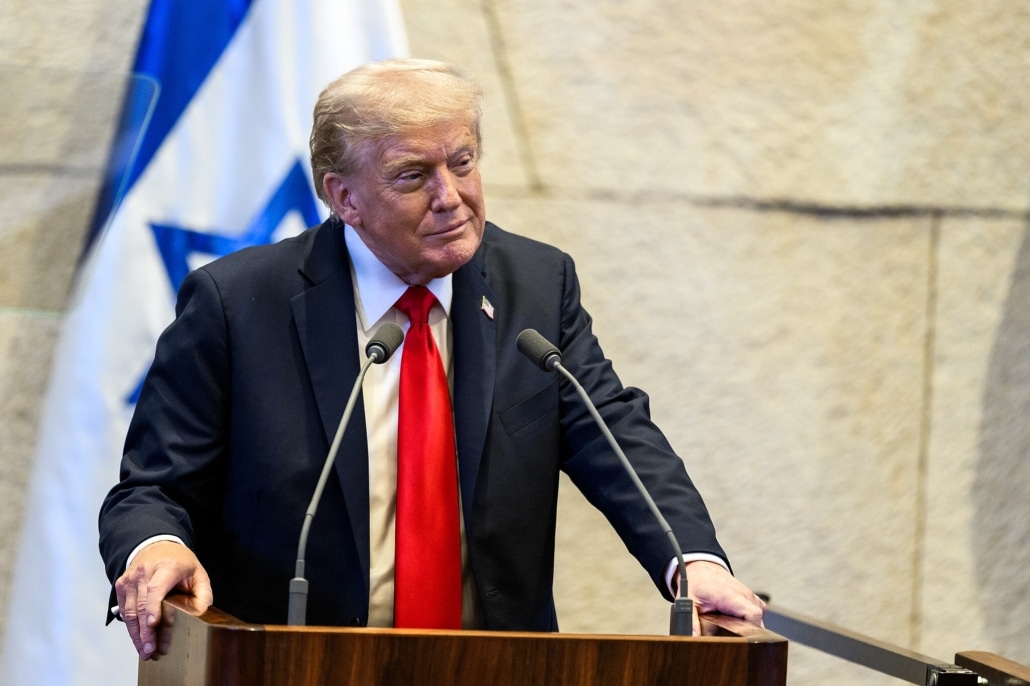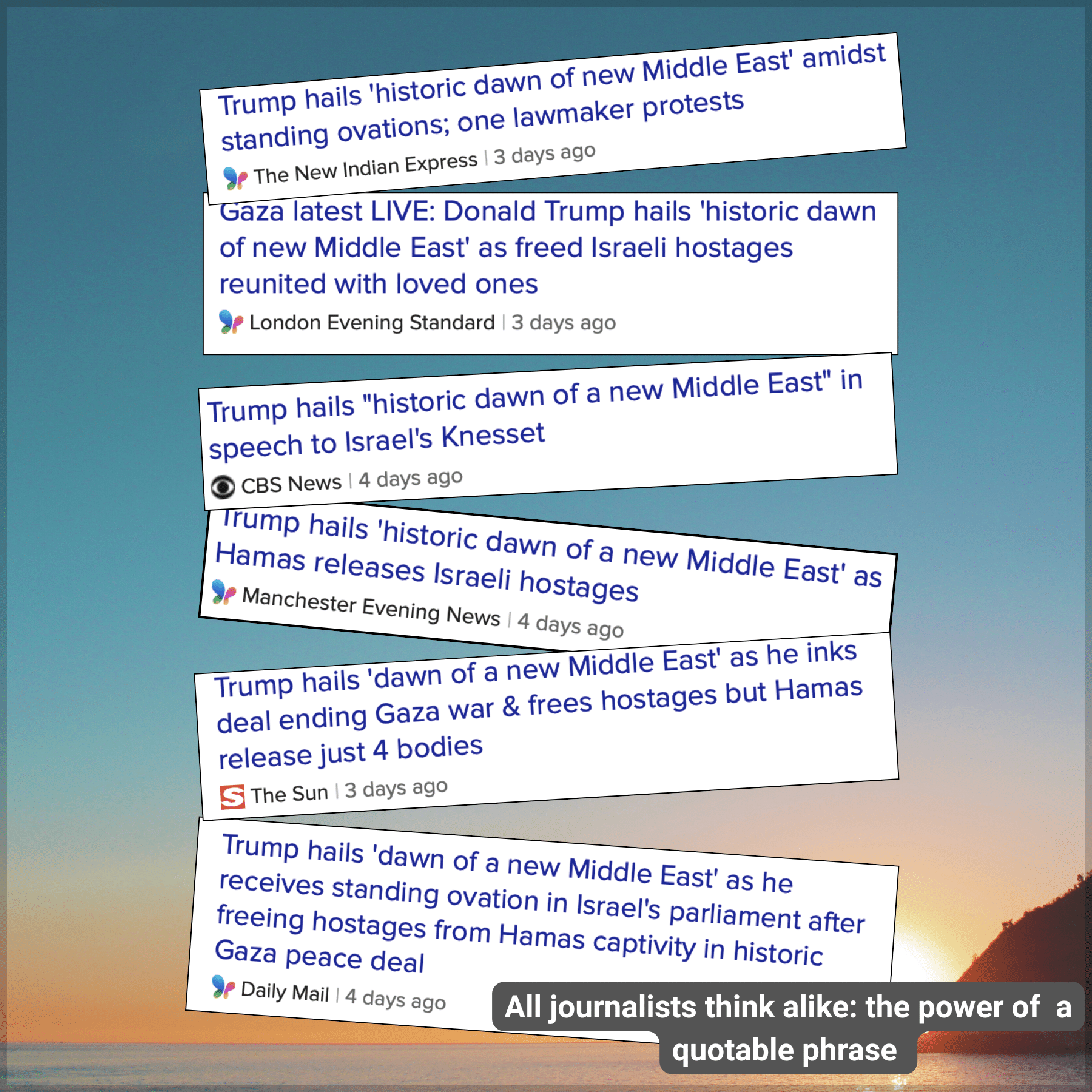A New Dawn (Again): Why Clichés Still Make Great Headlines
Within minutes of the start of President Trump’s address to the Israeli Knesset last week, every major news outlet flashed headlines quoting the same line: “the historic dawn of a new Middle East.”
Serious analysis came later — about foreign policy, tone, and intent — but in that first wave of headlines, every journalist reached for the same familiar image of renewal and hope.
It’s hardly new. From Tony Blair’s “a new dawn has broken” in 1997 to Nelson Mandela’s “a new dawn is upon us” in 1994, leaders have long turned to this kind of imagery when they want to signal change. Trump’s “historic dawn of a new Middle East” is the same rhetorical move — simple and instantly quotable.
That consistency of reporting across newsfeeds — from the Manchester Evening News and New Indian Express to CBS — highlights the symbiotic relationship between speechwriters and journalists. Speechwriters craft lines built to be quoted; journalists, under pressure to file fast, recognise those ready-made headlines and grab them. The result is a global echo chamber in which a few words can define a whole event.
Sometimes that line is a metaphor, like “a new dawn.” Other times it’s an idiom such as “a perfect storm,” “the tide has turned,” or, in a technical briefing last week rather than a political speech, IMF MD Kristalina Georgieva’s recent confession that the loose regulation of private credit markets “keeps me awake at night.” None of these is wildly creative. In fact, they’re well-worn — but that’s what makes them useful.
Familiar phrases work because they’re easy to quote, easy to understand, and they sound natural. They don’t require explanation. They fit neatly into headlines, soundbites, and social posts.
It’s tempting to think a truly memorable line must be clever or poetic. And it can be. But the phrases that travel fastest are often the simplest — a few short words that tap into shared language and emotion. “New dawn,” “perfect storm,” “keeps me awake at night” — all are instantly understood and instantly repeatable.
For those of us who occasionally speak to journalists or stand on conference platforms, the lesson is clear: you don’t need to reinvent the wheel to be quotable. You just need to find a line that feels authentic and quote-ready. It has to be something you’re genuinely comfortable saying — and you certainly don’t need to resort to hyperbole or outright invention. A touch of flair is enough.
Teaching new spokespeople how important it is to give journalists a quote, is one of the major takeaways from our Media Training. If you would like to understand the range of communications training we offer either email enquiries@themediacoach.co.uk or call 020 7099 2212 and if I am not training, I’ll be there to see if we can help.
Image of Trump: Source The White House, Public domain, via Wikimedia Commons
- A Behind-the-Scenes TV Cheat… and Why It Works - November 26, 2025
- What Should I Do With My Hands? - November 19, 2025
- A Jar of Marbles and the Power of a Simple Story - November 12, 2025






Leave a Reply
Want to join the discussion?Feel free to contribute!